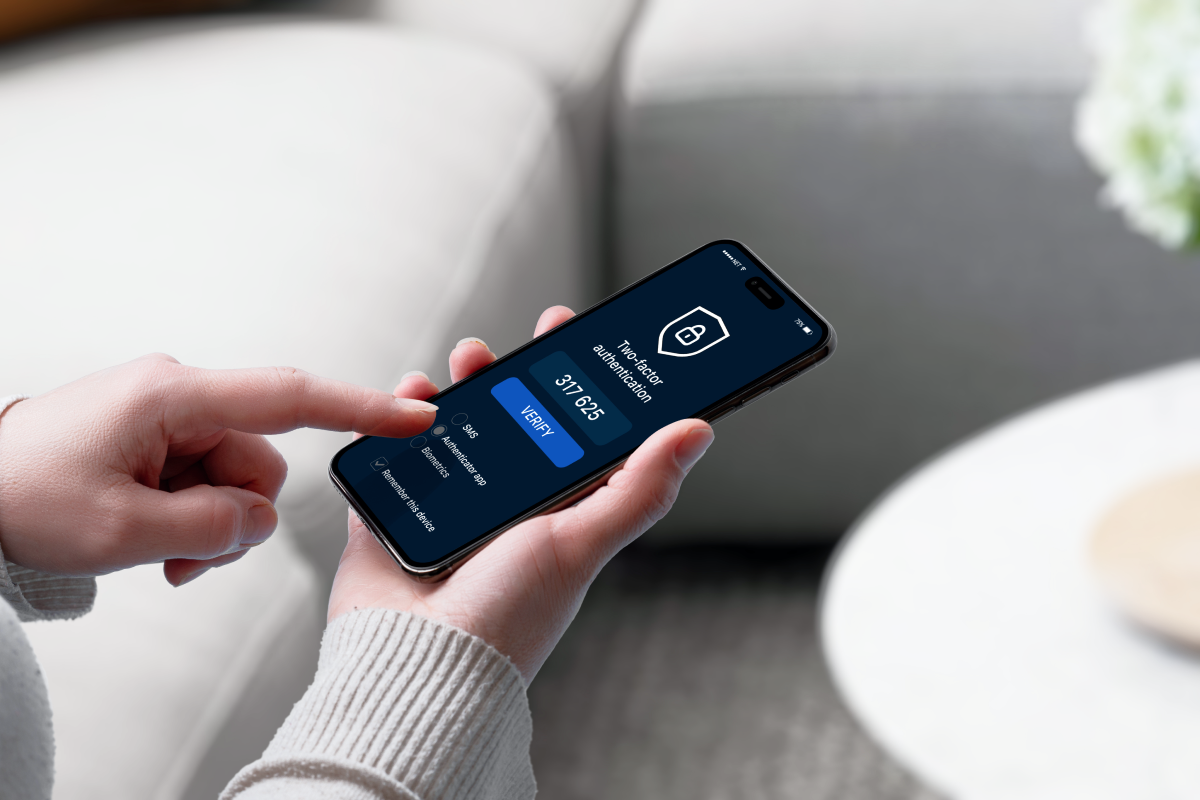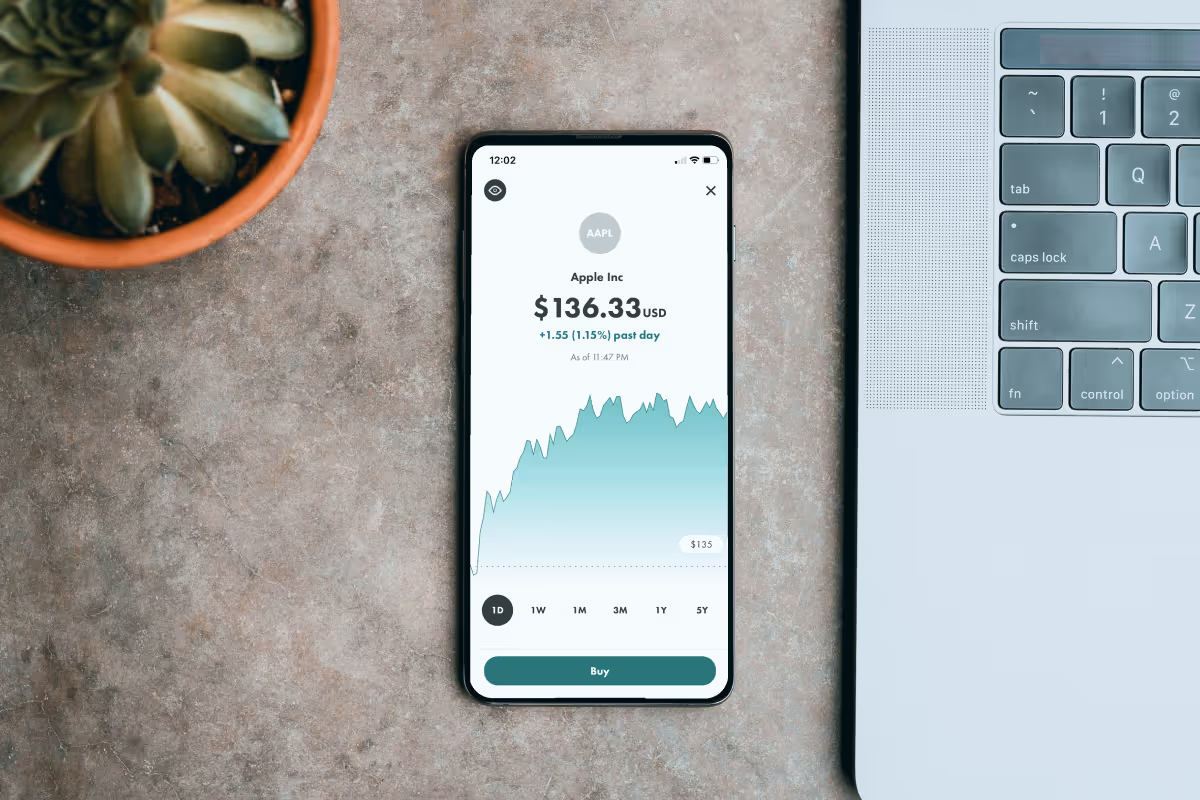Proptech real estate turned the industry inside out. Sellers don't need to wait for potential buyers to arrive with the open doors, home hunters shouldn't spend their time getting to the place to check it, and agents can close the deals in a few clicks. Proptech made many processes easier in the ways that we'd hardly imagined before.
In this article, I'll give a deep overview of the proptech. I'll explain what proptech is, how it reshapes real estate, what are the most trending technologies and unpack top-3 proptech companies. There’s a lot to cover, so let’s start.
U.S. Real Estate Market: 30’s VS Now
Accessing good education, owning property, feeling freedom, and carving your life as you wish are all part of the American dream. The U.S. has been creating this picture of a perfect life for years and owning a property has always been an essential part of it.
Clarence Barron, an American journalist and manager of The Wall Street Journal, once said:

Barron was right. After the crash of 1929 and the Great Depression, the American real estate market started to rise tremendously.
What do we see now?
Millennials are entering the prime homebuying age, baby boomers are downsizing, the U.S. housing market is heating up. A pandemic, historically low mortgage rates, and flexibility to work from anywhere fanned the flames even more.
New generations with new habits create new rules in the real estate market. For example, according to the National Association of Realtors, 43% of buyers search for a new home online and only then contact an agent to show them the property. While only 18% contact an agent first.
But let's not make these stats absolute. There are still many (87%) homebuyers purchasing their home through a real estate agent or broker. The reason for that is the complexity of the homebuying process. On the other hand, the obstacles create opportunities. This is where the proptech makes the disruption in the real estate.
What is Proptech?
Beneath the buzzword, proptech meaning becomes clear when you break it down into two parts: property and technology. In simple words, proptech is any digital transformation you currently see in real estate.
Usually, this transformation is in the form of software that improves the way people find, purchase, rent, maintain, manage, or invest in real estate property. Here are just a short list of proptech examples:
- Property listings;
- Property management software;
- Control building platforms;
- Property trading platforms;
- Smart contracts;
- Rental services;
- Mortgage applications;
- Marketplaces;
- V.R. & A.R. modeling;
- IoT home devices.
Airbnb, WeWork, Compass, and Zillow are the most vivid examples of proptech real estate. They transform the property industry using innovations in transactions, house searching, viewing, renting processes, data assembly, etc.
Planning to build proptech app? Leverage our expertise. Contact us
3 Roots of Proptech Real Estate
Now, when the question "what is proptech real estate?" is clear, let's dive deeper and find the roots of proptech industry. The recent research by the University of Oxford, Proptech 3.0, suggested 3 independent dimensions that formed proptech as we see it now.

Real Estate Fintech
Fintech real estate is the first topic to focus. Imagine all the things that can facilitate the trading of buildings, property shares, funds, debt or equity – all this is called real estate fintech.
Such platforms may provide prospective buyers and sellers with the necessary information or directly facilitate the transactions, financial services, etc. Interestingly, most proptech companies (38%) are transaction-focused real estate fintech startups. It means they facilitate the trading of real estate ownership and leasing.
Real estate fintech examples: Zillow, Zoopla, LendInvest, Opendoor, Foofstock, Propio, Cadre.
Shared Economy
The latest Statista data showed that the number of U.S. citizens participating in the sharing economy was expected to hit 86.5 million in 2021. That's more than the entire population of Germany! There is no updated statistic yet, but I suppose the figures are close to reality.
For Millenials, the use of sharing economy services is more a necessity than a preference. They choose to book an Airbnb apartment over the hotels and work from WeWork rather than from an office. This is how the sharing economy is reshaping real estate.
Shared economy proptech examples: Airbnb, WeWork, Clutter, AppearHere.
Smart Real Estate
The last proptech root is smart real estate. All the properties built according to sustainability, connectivity, and automation rules are considered as smart real estate.
As you probably guessed, smart real estate isn't only about the beautiful mobile or web app, it's also about the construction and design of buildings. This is usually called Contech. Here are a few examples of smart real estate:
- Smart sensors to measure and report on equipment usage and adjust lighting and temperatures;
- Occupancy sensors to detect the locations, count, and movement of people in the buildings. It helps companies to adjust office layout, add or subtract meeting rooms, or implement hotdesking strategies;
- In a smart retail environment, smart sensors can track footpaths, allowing store managers to adjust product placement, plan staff support for peak times, and make inventory adjustments to match customer demand.
Smart real estate examples: EDGE Technologies, ProCore, Autodesk, Johnson Controls, Katerra.

Trending Technologies in Proptech
Innovative property technology stands in the center of proptech real estate. What was time- and cost-consuming becomes fast and efficient now. Below I gathered proptech trends that are reshaping real estate now.
Blockchain
Traditionally, to close a real estate transaction, you should go to a bank, pick up a bank-certified check or send wire transfers. Sounds inefficient, right?
Using blockchain technology, these transactions can occur in a matter of seconds. Depending on the blockchain platform, real estate properties can be bought and sold around the clock and in rapid time.
Alternative Payments
According to the WorldPay data, the proportion of North American e-commerce spending from credit cards shrunk by 7% in 2020, and BNPL's share increased by 78%. Digital payments alone aren't enough. It looks like people will continue to demand alternative ways of payments, including BNPL, cryptocurrencies, and pay-with-points (PwP) capabilities.
Retailers who offer alternative payments for real estate properties are likely to get better customer loyalty and generate additional revenue.
Augmented and virtual reality
It wasn't a big problem for people to go and check the property before the pandemic. But it became literally impossible when we all were under the lockdown, which gave the AR&VR technologies a big boost.
Remote virtual tours became an option for many buyers as the industry pivoted to address the new environment. With the VR feature, agents can sell to clients worldwide. At the same time, home hunters can make a decision knowing exactly what they are buying or renting. Virtual reality home tourse was the key feature we developed for our real estate client, Yaza. Check out the full case study to learn how we made it possible.

Top Proptech Real Estate Companies: Unpacking
Zillow
Zillow is a real estate company that provides information about homes, real estate listings, and mortgages through its website and mobile applications. The company has the largest property inventory and one of the most extensive filter lists. Total mobile app downloads for Zillow.com is 600K worldwide, which is huge!
But let's take a look at both sides of Zillow.com.
Pros:
- Simple UI design
- Ability to create 3D tours
- Detailed search and filter criteria
- Real estate agents can connect their CRM systems to the real estate website
- Easy to connect with realtors (chat, call)
- Property evaluation
- Custom notifications
- Users have access to over 125 million homes
- Personal rental profiles
Cons:
- No passive suggestions
- Photos only
- Estimate algorithms are not always accurate
- Difficult to identify a listing agent
- Search filters can be inaccurate
Compass
To set itself apart from Zillow, a New York startup, Compass focuses on broker listings for rental and ownership opportunities. Compass was the first to create a mobile app for real estate agents, what made them a great example of a proptech company.
Compass shows how data is reshaping real estate by using data-driven technologies to help agents make better decisions. Just for the record, the company reports $1.4 billion in revenue for Q122, which is 25% up from 1Q21.
Pros:
- Real estate agents can connect their CRM systems to the real estate website
- Simple and fresh UI design
- Awesome agents community
- Buyers and real estate agents community
- Property listings with virtual tours
Cons:
- Fewer features range
- Search filters can be inaccurate
- Photos only
Redfin
Founded in 2002, the Seattle-based startup Redfin is obviously the oldest player in the real estate market, but it doesn't lag far behind. The most distinctive Redfin's feature is the focus on the customer service experience. They put all the innovation to compensate agents primarily based on customer satisfaction, regardless of whether or not the deal closed.
Pros:
- Virtual tours scheduling
- 'Find agent' feature
- Property's risk information (from flood to wildfire to regional drought)
Cons:
- Slow app
- Not clear UI design
- No social aspect
- Different map styles

The Future of Proptech
Once the industry goes digital, it will never return to the way things used to be. The real estate proptech market will likely attract a great deal of attention from venture capital firms in the upcoming years.
I suppose the future of digital real estate will focus on automating tasks, meeting global challenges like COVID, changing according to renter needs, and improving overall operations. Without this digital transformation, there is a higher risk of failing in growth and losing the competition.
Proptech Real Estate Infographic
83.5 million housing units in the US are occupied by owners in 2021.
43% of buyers search for a new home online first.
18% of buyers contact an agent first.
38% of millennials are comfortable buying a home online.
87% homebuyers purchasing their home through a real estate agent or broker.
38% of proptech companies are transaction-focused real estate fintech startups.
The VR market in real estate is expected to generate as much as $2.6 billion by 2025.
Real estate company tech budgets could increase in 10% in 2022.

Conclusion
The real estate industry naturally evolved into proptech under the conditions of a new digital reality. New technology, like blockchain, alternative payments, and AR&VR, already add value to home hunters, real estate agents, and everyone involved in real estate. Overall, with the development of proptech, the friction of buying a home and the transaction costs across the market have plummeted.
If this article inspired you for the app idea for proptech, or you already have one but lack a product development team, contact us. We have helped to develop cool real estate products, like Yaza and Nomad, so you can give us a try.












































































.avif)























